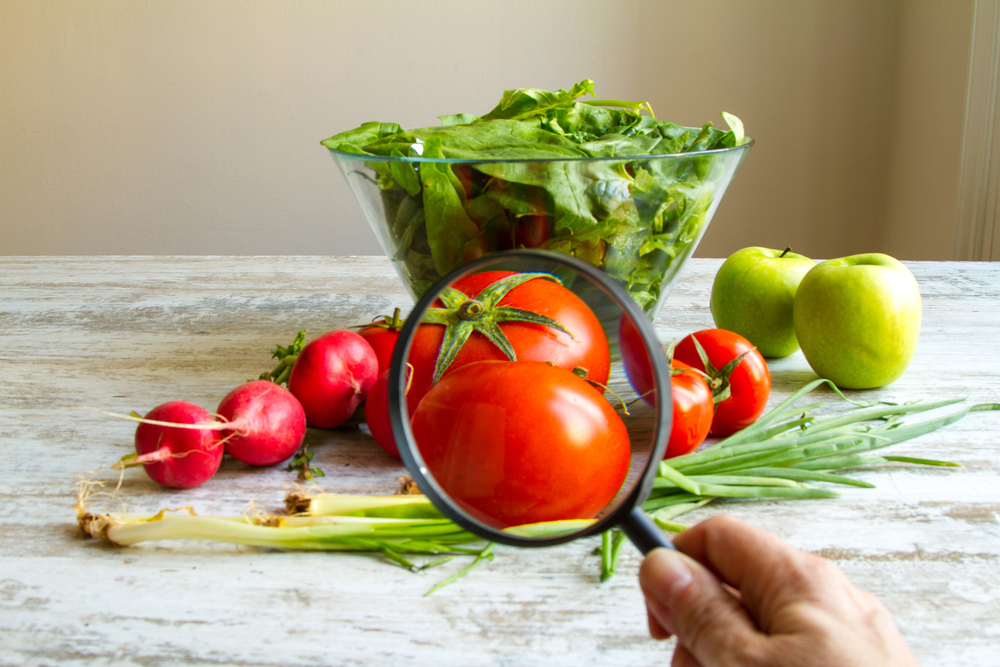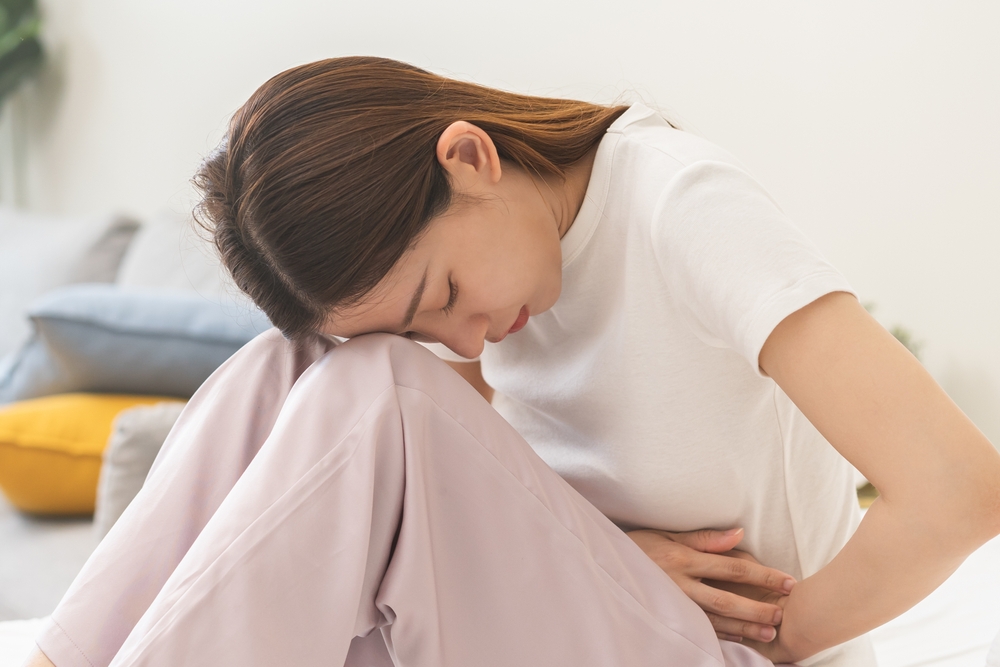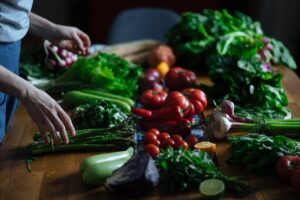If you were enjoying your holidays in peace when you suddenly started experiencing food poisoning symptoms like vomiting, diarrhea, and an upset stomach, the first thing you need to do is let your stomach rest.
This also means avoiding food and drink altogether for a couple of hours. Food poisoning generally occurs when pathogens contaminate food or drinking water. Even if it’s uncomfortable, food poisoning is quite common.
The Centers for Disease Control and Prevention estimated that 1 in 6 people in the United States might get some kind of food poisoning on a yearly basis. If you want to learn what to eat after it passes, read this article.

Stay hydrated
Liquid intake is highly important for helping your body fight off food poisoning effects. Vomiting and diarrhea could cause dehydration. That’s why sucking on ice chips or taking small sips of water might be a good starting point.
Sports drinks with tons of electrolytes are also very good when it comes to preventing dehydration during this time. Other proper liquids might include:
- non-caffeinated sodas, like Sprite, 7UP, or even ginger ale
- decaffeinated tea
- chicken or vegetable broth
Eat bland food.
When you feel you can hold down food, eat something that’s gentle on your stomach and your gastrointestinal tract. In fact, it’s recommended to stick with bland, low-fat, low-fiber foods.
Fat is harder for your stomach to digest, especially when it’s this upset. Make sure you avoid fatty foods to prevent upsetting them even more. Foods that are gentle on the stomach could also include bananas, cereal, egg whites, honey, Jell-O, oatmeal, potatoes, rice, salty foods, toast, and applesauce.
The BRAT diet is an excellent guide to follow when you’re experiencing food poisoning.
Try natural remedies.
During an ugly episode of food poisoning, it’s very important for your body to follow its natural reaction to cleanse and purge the digestive tract and get rid of harmful bacteria.
That’s also why an over-the-counter diarrhea medication isn’t the best way to treat food poisoning. As your symptoms are peaking, you will want to avoid drinking ginger tea because ginger is known to soothe the stomach.
If you don’t have any, here’s a good one. Once you’re feeling better, you might want to replace your normal intestinal flora with proper natural yogurts and probiotic capsules for a minimum of 2 weeks.
This will help your body get back on track and fight the healthy bacteria lost in the food poisoning purge, but it will also get your digestive system and immune system back on their feet.
Other tips
It’s highly advisable to delay brushing your teeth for at least an hour. Stomach acid expelled during vomiting could damage the enamel on your teeth, and brushing your teeth right after vomiting could further erode the enamel.
Instead, rinse your mouth with a mix of water and baking soda. Showering might also help cleanse your body of all those unhealthy bacteria. You should try to get plenty of rest. Getting enough rest could help you feel better and faster.
What foods and drinks should you avoid?
Your body is already on the offensive, shooing away the pathogens responsible for food poisoning. You really don’t want to give the invaders any more ammunition. Your number one priority should be to try and avoid the foods that caused you to get sick in the first place.
Throw the suspected culprit into the garbage right away, and keep it shut so the contaminated food is out of your pets’ reach. Avoid foods, drinks, and any other substances that might be tough on your stomach, like alcohol, caffeine, spicy foods, and foods high in fiber.
Also, make sure you stay clear of dairy products, fatty and fried foods, nicotine, seasoned foods, and fruit juices.

What exactly causes food poisoning?
There are five pathogens responsible for the wide majority of foodborne illnesses in the U.S. These are:
- norovirus—it’s commonly found in oysters, fruits, and vegetables.
- Salmonella is commonly found in eggs, meat, and dairy products.
- Clostridium perfringens is found in meat and poultry.
- Campylobacter is found in undercooked meat and contaminated water.
- Staphylococcus is found in animal products, like cream, eggs, and milk.
Salmonella and norovirus are mainly responsible for the wide majority of hospitalizations caused by food poisoning. However, hospitalizations can also be caused by bacteria, parasites, mold, toxins, contaminants, and allergens.
Undercooked meat and wrongfully handled produce are also common culprits in food poisoning. Wash your hands, utensils, and plates between raw and cooked stages.
Even if most people who suffer from food poisoning don’t really need a trip to the hospital, you definitely don’t want to go too far from the bathroom either. Upset stomachs, vomiting, and diarrhea are some of the most common symptoms.
They generally subside right after 48 hours, and if you also have a history of dehydration, heart disease, embolism, or any other serious health issues, you need to drink plenty of fluids.
Who’s at a higher risk?
Infants and children
Food poisoning is just as common in children as it is in adults, and it can be a serious cause for concern. Children, especially those who are under 1 year of age, are even more susceptible to botulism.
Botulism is quite rare, but it can lead to paralysis and even death. Children are also in greater danger of having complicated reactions to the E. coli bacteria. Any infant or child who seems to have symptoms of food poisoning needs to be seen by a medical professional to rule out a case of botulism or dehydration.
Children become dehydrated more easily than adults, and they need to be monitored very closely.
Pregnant people
Pregnant people should treat any cases of food poisoning with a lot of precautions. Listeria food poisoning has been proven to hurt the development of unborn babies.
Proper nutrition for pregnant women is also very important to helping their babies develop. For this particular reason, any signs of food poisoning should be immediately brought to the attention of a medical professional.
Older adults
Older adults are more susceptible to the complications of food poisoning. To be more specific, some strains of E. coli could easily lead to hemorrhaging and kidney failure.
If an adult over the age of 65 has symptoms of food poisoning, they should try to contact their primary care physician for advice.
People with chronic conditions
People who suffer from chronic illnesses like HIV, liver disease, or even diabetes are at a much greater risk of experiencing more serious complications from food poisoning.
For those people who currently receive treatments that suppress the immune response, like chemotherapy, this is even more of a risk.
When’s it time to talk with a doctor?
The main symptoms of food poisoning don’t usually last more than 48 hours. If diarrhea lasts longer than 3 days, then it might be time to call a medical professional.
Also, you need to remember that severe symptoms like blood stool, dizziness, muscle weakness, and severe stomach cramping should be taken very seriously. Don’t wait for those symptoms to subside before consulting a doctor.
Food poisoning in restaurants
If you’re wondering if there’s anything you can do to prevent getting food poisoning when you go out to eat for the holidays, then yes, there is. If you want to avoid it at restaurants, make sure you choose those that have few to no health code violations.
First, you’d want to check your local county health and human services department for restaurants that have registered recent infractions. Many of these departments have a rating or number system to help you decide on a restaurant and minimize your risks.
If you enjoyed reading this article, we also recommend reading: 8 Great Ways to Reduce Your Salt Intake Without Sacrificing Taste








1 thought on “4 Things to Eat and Drink After Food Poisoning”
very informative